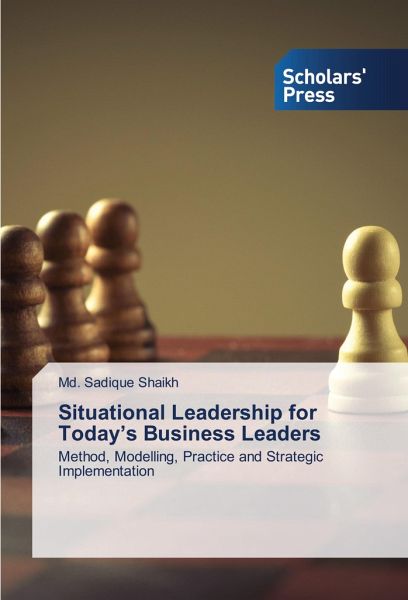
Situational Leadership for Today's Business Leaders
Method, Modelling, Practice and Strategic Implementation
Versandkostenfrei!
Versandfertig in 1-2 Wochen
59,99 €
inkl. MwSt.

PAYBACK Punkte
30 °P sammeln!
Though much attention has been given to the traits and styles of effective leaders, another approach to the question has been developed in recent years. Rather than seeking out universal traits or behaviors that are always effective, many theorists now suggest that flexibility in leadership style is key to success. Situational theories of leadership promote the idea that the most effective style of leadership differs from situation to situation. Created by Paul Hersey and Paul Blanchard in the late 1960s, situational leadership refers to an adaptive management style where a leader¿s style mor...
Though much attention has been given to the traits and styles of effective leaders, another approach to the question has been developed in recent years. Rather than seeking out universal traits or behaviors that are always effective, many theorists now suggest that flexibility in leadership style is key to success. Situational theories of leadership promote the idea that the most effective style of leadership differs from situation to situation. Created by Paul Hersey and Paul Blanchard in the late 1960s, situational leadership refers to an adaptive management style where a leader¿s style morphs depending on the task, the people, and the function being managed. Today, it may seem like common sense that not all employees react in the same way to different management styles. However, in the mid to late-21st century, this was revolutionary.Situational leadership differs from past leadership styles in that the manager is more of a facilitator than an autocratic boss. They are successful by ascertaining how to motivate and relate to different types of individuals and address different types of situations. This book explains it with my researches.














